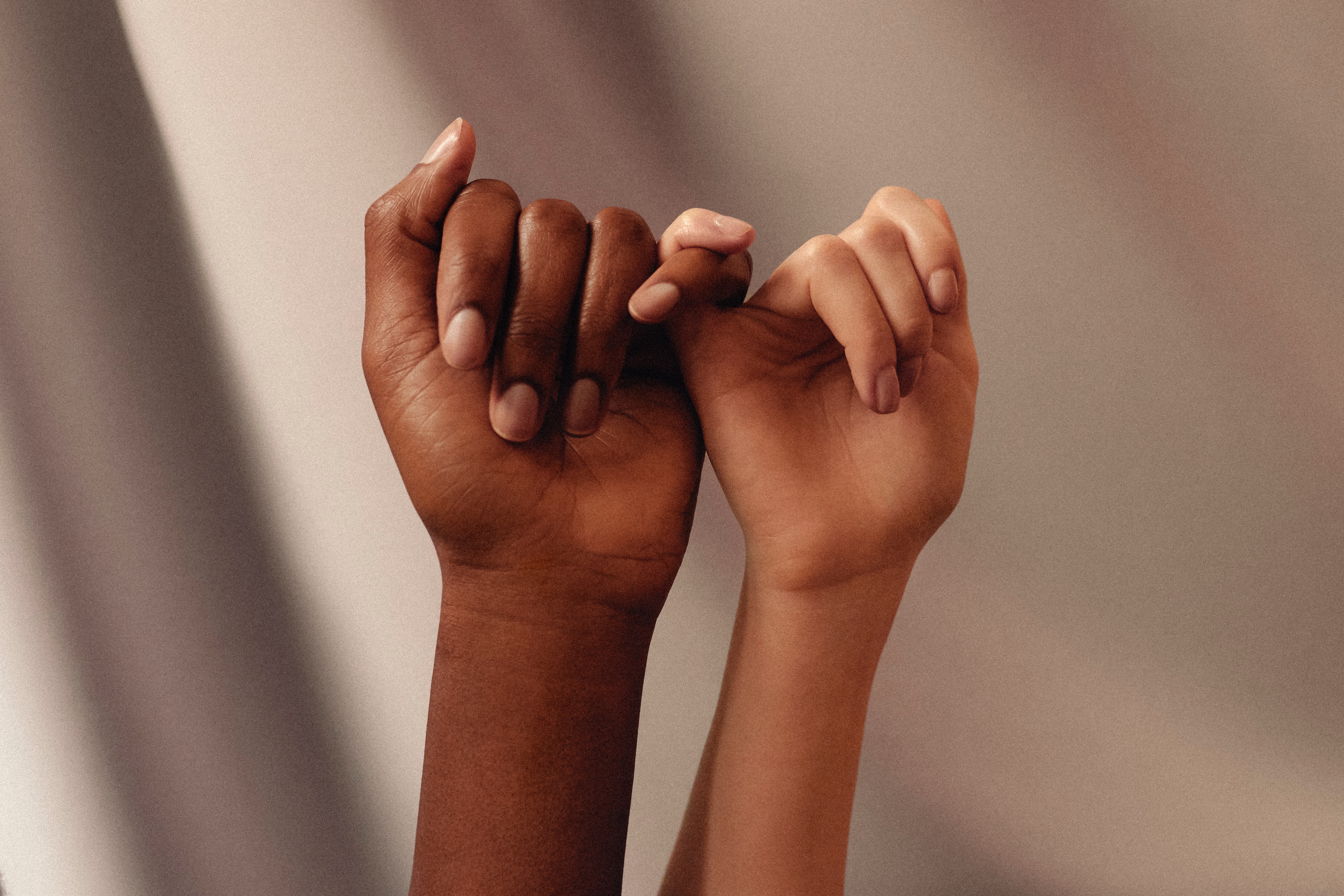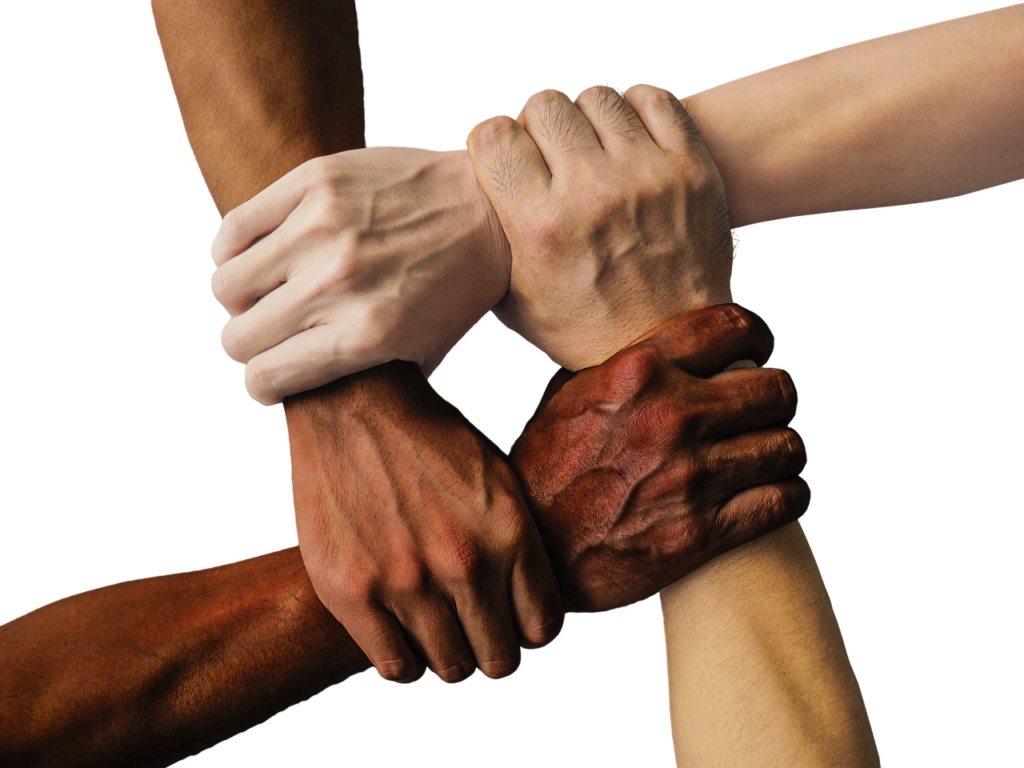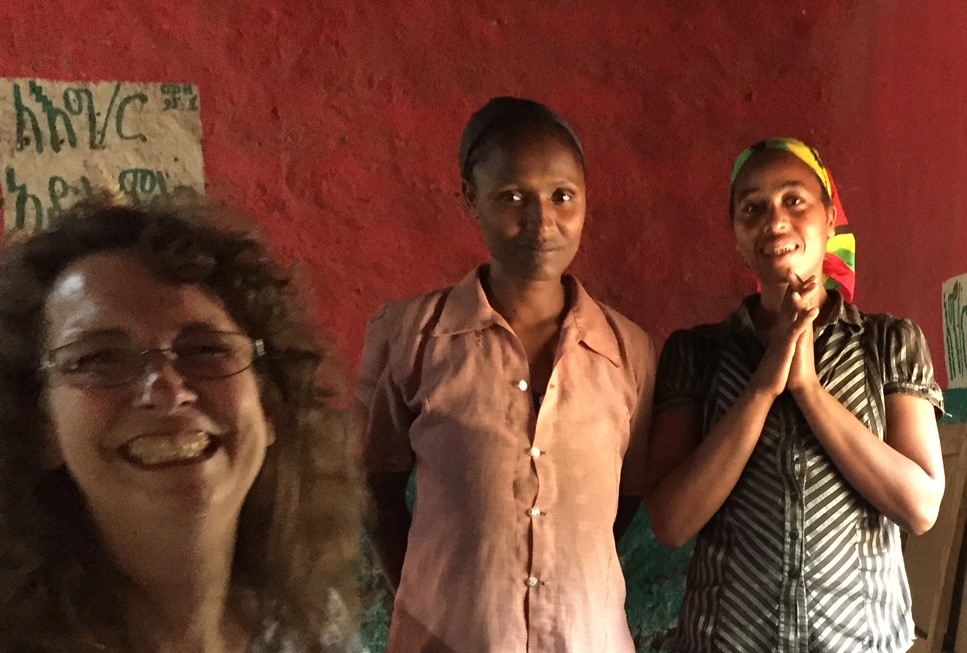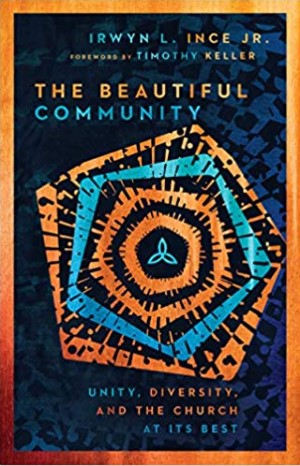The Testimony of Sacred Similarities and Divine Differences

Aspiring to Beautiful Community
Happy Juneteenth!
Comparisons spill out when we welcome a new family member. “Look, she has her mama’s eyes.” “I see her daddy’s dimpled cheeks.” “She has Aunt Jenny’s red hair.” We search those precious newborns for family resemblance. We. Just. Do.
Last year my oldest daughter gave birth to her fifth; my youngest daughter welcomed her first. Yeah! Two new grandbabies for me! The babies were born three weeks apart. Both baby girls weighed the same. Dark hair covered both heads, and both babies have a raspberry birthmark on their backsides (not the same spot but the same size). I call them identical cousins, but they aren’t.
They differ in several ways: eye color, activity level, even their reaction to a dirty diaper. God wove these similarities and differences into my granddaughters just as He does the whole human family.
Back in the ‘90s, I watched Arsenio Hall’s T.V. show. His facial expressions and jawline mesmerized me because these features reminded me of a friend from high school. Yet, Arsenio is African-American, and my friend descended from Irish stock. Despite their contrasting hair and skin tones, their similar facial features reveal their connection. Physical similarities that ignore geopolitical boundaries confirm our sacred union as one human family. We all bleed red. We all need love. We all descended from Adam.

God creates each of us in His image. Reflecting His multi-faceted majesty requires infinite diversity; hence, human diversity is divine. God diversified languages to force people to populate the whole world.
God’s judgment at Babel drove people to migrate across the globe (Genesis 11). Different weather conditions and food supplies began to shape different cultures. Adaptation transformed the physical features of people in varying regions. Unfortunately, humanity is a sinful race.
We constructed class and racial systems to claim superiority and oppress other people groups. We deny the truth with these false contrivances; God created all people in His image. The grievous sins of classism, racism and ethnic supremacy grieve God. Jesus calls us out of that darkness.
“There is neither Jew nor Greek, there is neither slave nor free, there is neither male nor female; for you are all one in Christ Jesus.” Galatians 3:38
In the proceeding passage, Paul acknowledges our differences and establishes our value. No one is less than human in Jesus’s eyes.
As followers of Christ, we witness God drawing people from every tribe, tongue, and nation. But do we embrace the diversity of those cultures? Pastor Irwyn L. Ince Jr. shows us how it’s done in his brilliant book The Beautiful Community.
I traveled through Ethiopia, visiting churches. A remarkable transformation in their worship occurred when a Marxist regime expelled foreign missionaries in the ‘70s. Without the influence of westerners, the Ethiopian churches cultivated their own style of worship.
I enjoyed listening to drums and the lilting of women praising God. The women often keep time with the music by stomping their feet and rocking their hands back and forth as though they held precious truths. I felt compelled with joy to join in the lilting during one service. Dark, smiling faces turned toward me. They had never heard a white woman lilt, but they seemed pleased that I did. By embracing their form of worship, I embraced them. With their smiles, they welcomed me.

“In order to be in community, we have to experience belonging, a sense of being at home.” Irwyn L. Ince Jr. The beautiful Community (page 84). My Ethiopian brothers and sisters made me feel at home.
How well do we welcome minorities in our local churches? “It is the church’s job to find ways to affirm the full humanity–the royal dignity–of all people, especially those others are inclined to despise.” (Irwyn L. Ince Jr.). Let’s be mindful to include, rather than ignore, minorities in our midst. We need to be mindful of what Pastor Ince calls “minority fatigue.” Let’s love minorities by extending hospitality; let’s show interest in them by asking about their culture. By reaching out, we set the stage for a beautiful community—a foretaste of Christ’s coming Kingdom.
